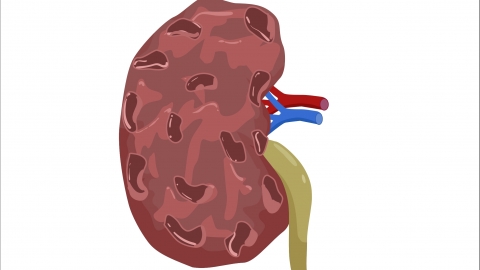Can I have children with polycystic kidney disease?
Generally, patients with polycystic kidney disease can have children, but this process requires careful consideration and close monitoring. Detailed analysis is as follows:

Patients with polycystic kidney disease are not absolutely prohibited from having children. If the condition is stable, kidney function is normal, and no serious complications have developed, pregnancy can be considered following a comprehensive evaluation and guidance from specialized physicians. However, since polycystic kidney disease has a certain genetic tendency—especially the autosomal dominant form—there is a 50% probability that children will inherit the disease. Therefore, detailed genetic counseling is necessary before conception to understand the genetic risks. Additionally, during pregnancy, the burden on the kidneys increases, which may accelerate the progression of polycystic kidney disease, leading to elevated blood pressure and declining kidney function. Thus, kidney function, blood pressure, and changes in kidney cysts must be closely monitored throughout pregnancy to ensure maternal and fetal safety.
Before conception, it is essential to undergo joint evaluation by nephrology, obstetrics/gynecology, and genetic counseling departments to clarify the disease status and genetic risks, and to develop a personalized reproductive plan. Furthermore, during pregnancy, regular prenatal checkups must be strictly followed as per medical advice, with close monitoring of indicators such as blood pressure, routine urine tests, and kidney function. Prompt medical intervention should be sought if any abnormalities occur.






